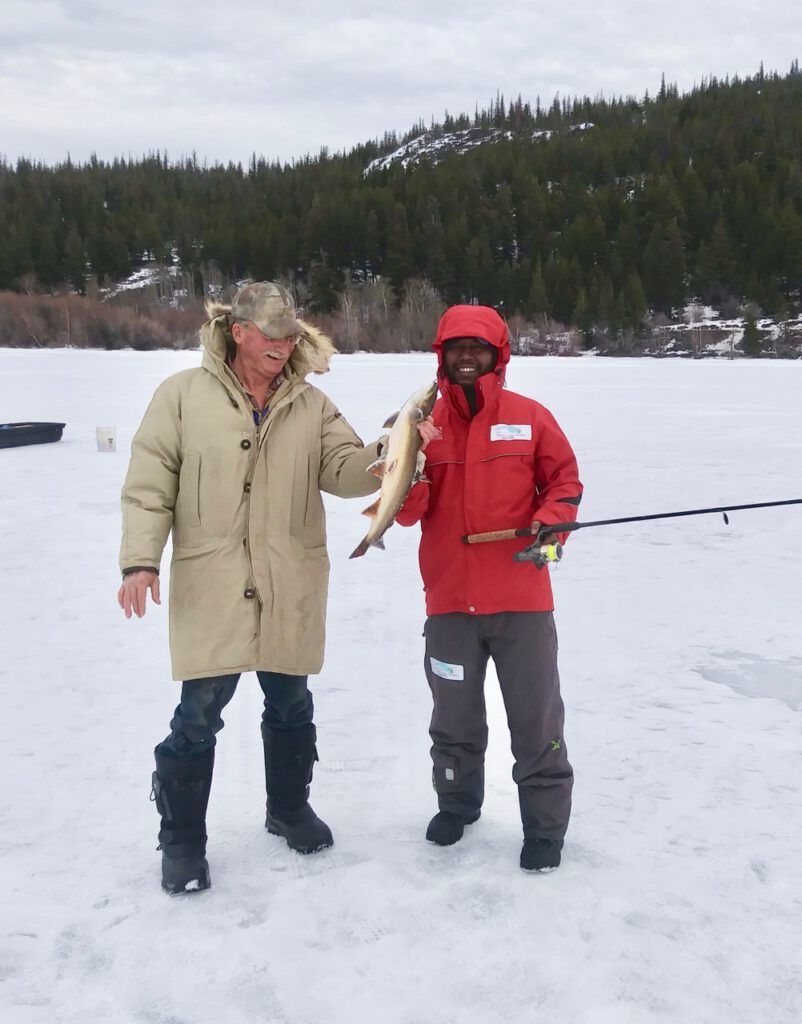I just realized that yesterday was the Spring Equinox 2018. I should have known as the sun now clears Nogwon when it sets. This is the light half of the year.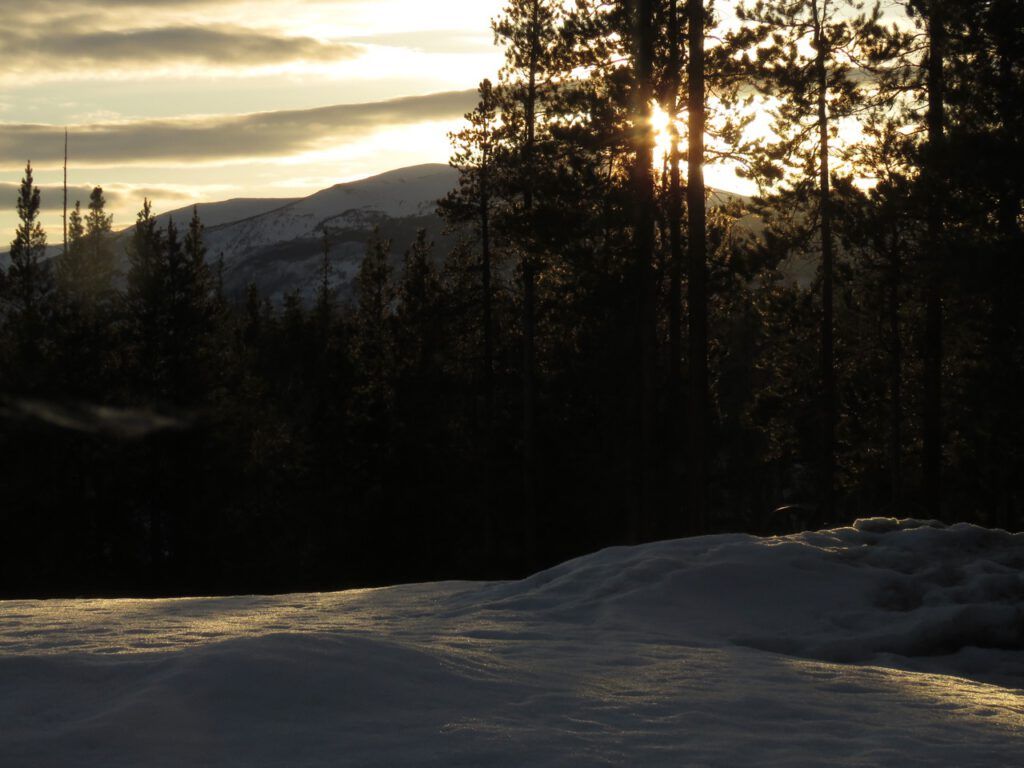
The very first pussy willows are showing – over 3 weeks later than usual.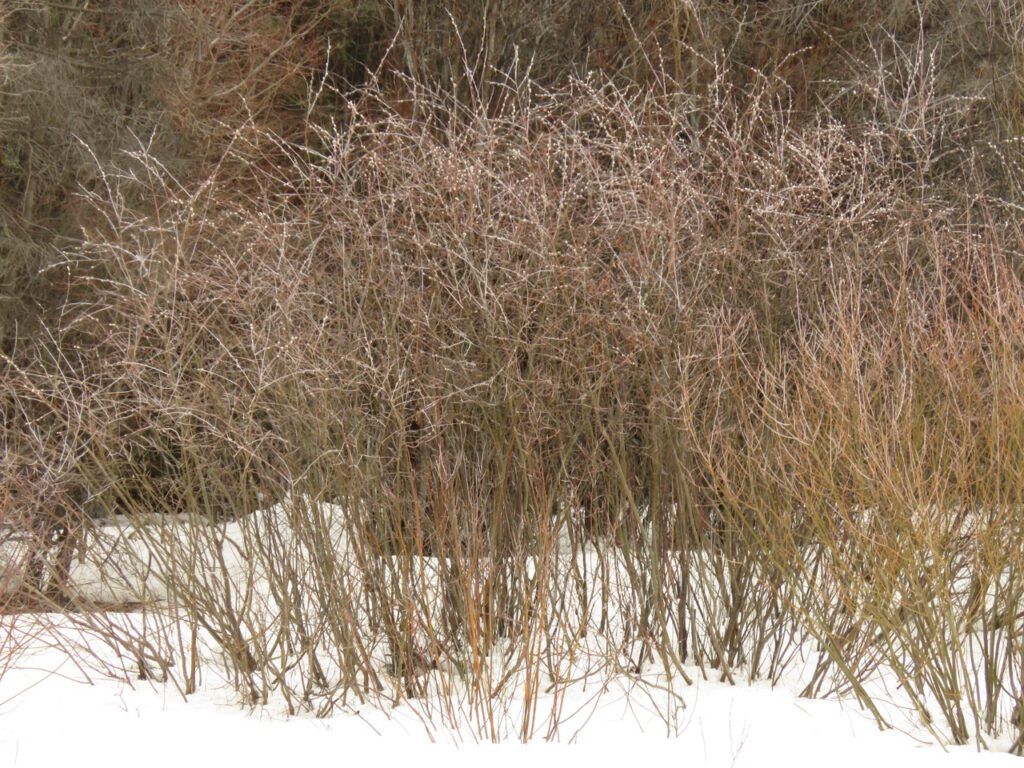
Early in March I took my first trip to town since 9th December last year. Sunrise caught me part way.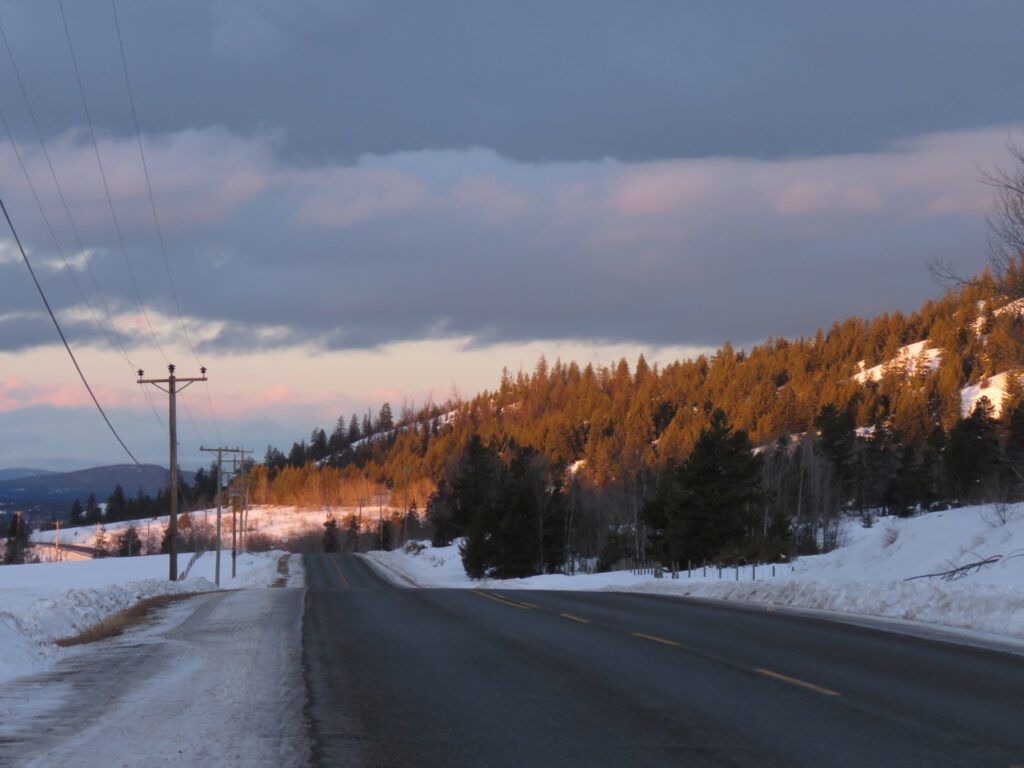 As I often do, I stopped at the outhouses at Lee’s corner. This is where I was turned back from the fire on July 7th. The hill below the outhouses has been stripped bare by the fire, and you can see all its wrinkles and contours.
As I often do, I stopped at the outhouses at Lee’s corner. This is where I was turned back from the fire on July 7th. The hill below the outhouses has been stripped bare by the fire, and you can see all its wrinkles and contours.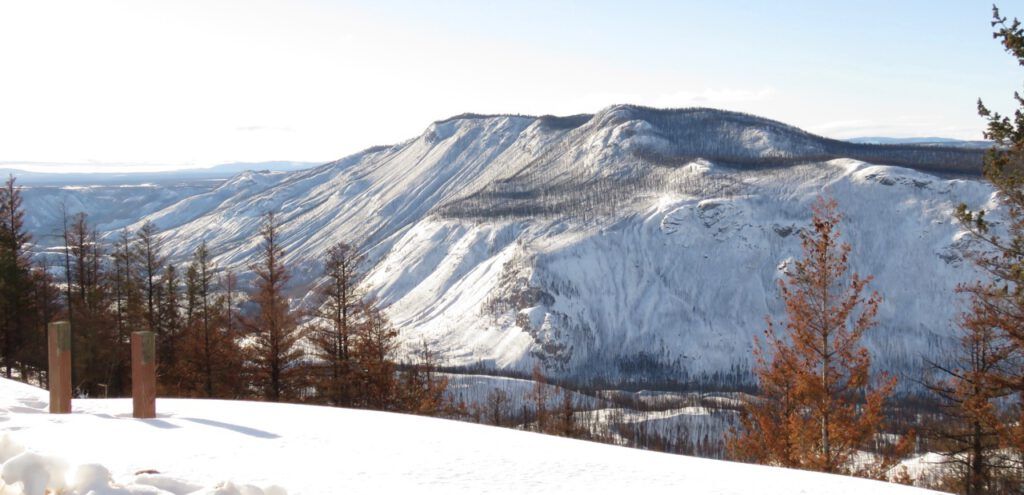 Another 45 minutes and you cross the Fraser River. No logging trucks immediately behind me so I was able to snatch this photo.
Another 45 minutes and you cross the Fraser River. No logging trucks immediately behind me so I was able to snatch this photo.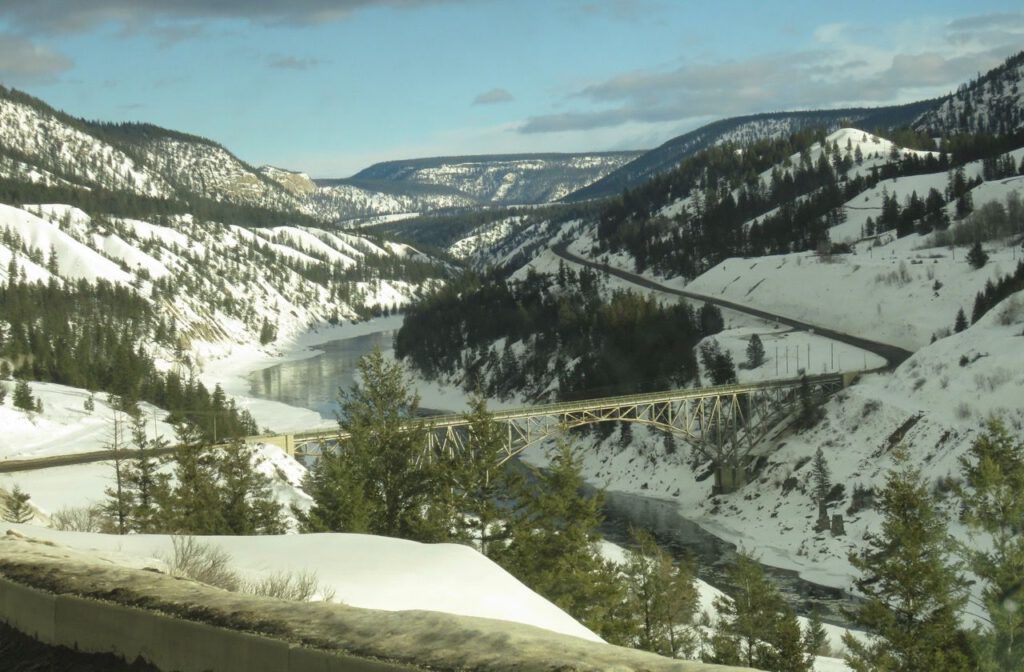 This next view is even harder to catch – can’t stop at all if there is something on the road.
This next view is even harder to catch – can’t stop at all if there is something on the road.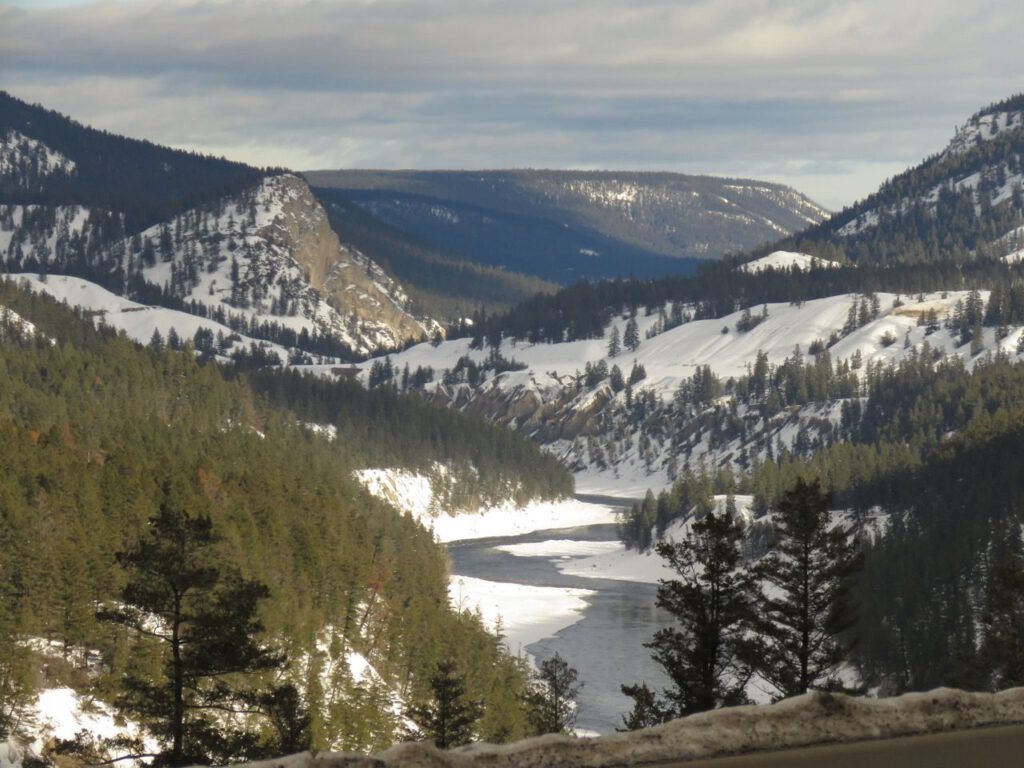 Williams Lake is not a pretty town although the main business area is brightened with flowers in summer. They’d had more snow latterly than we had. It was thawing, and very dirty.
Williams Lake is not a pretty town although the main business area is brightened with flowers in summer. They’d had more snow latterly than we had. It was thawing, and very dirty.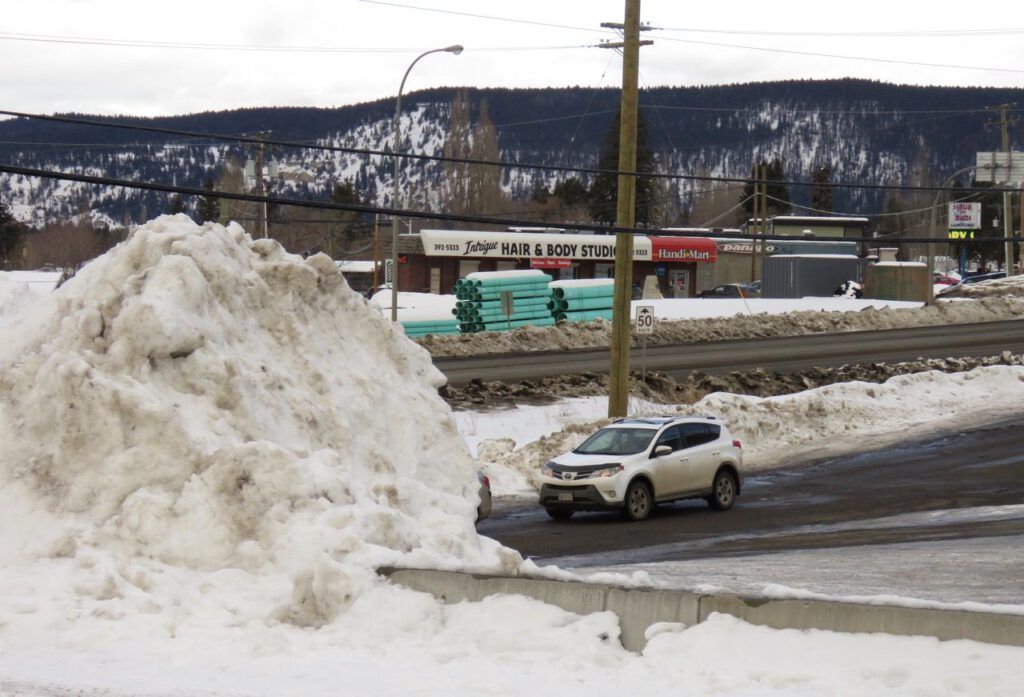 I drove through a lot of muddy slush; coming home I climbed into our cooler, west Chilcotin weather, and the slush froze solid. Good job I didn’t get a flat!
I drove through a lot of muddy slush; coming home I climbed into our cooler, west Chilcotin weather, and the slush froze solid. Good job I didn’t get a flat!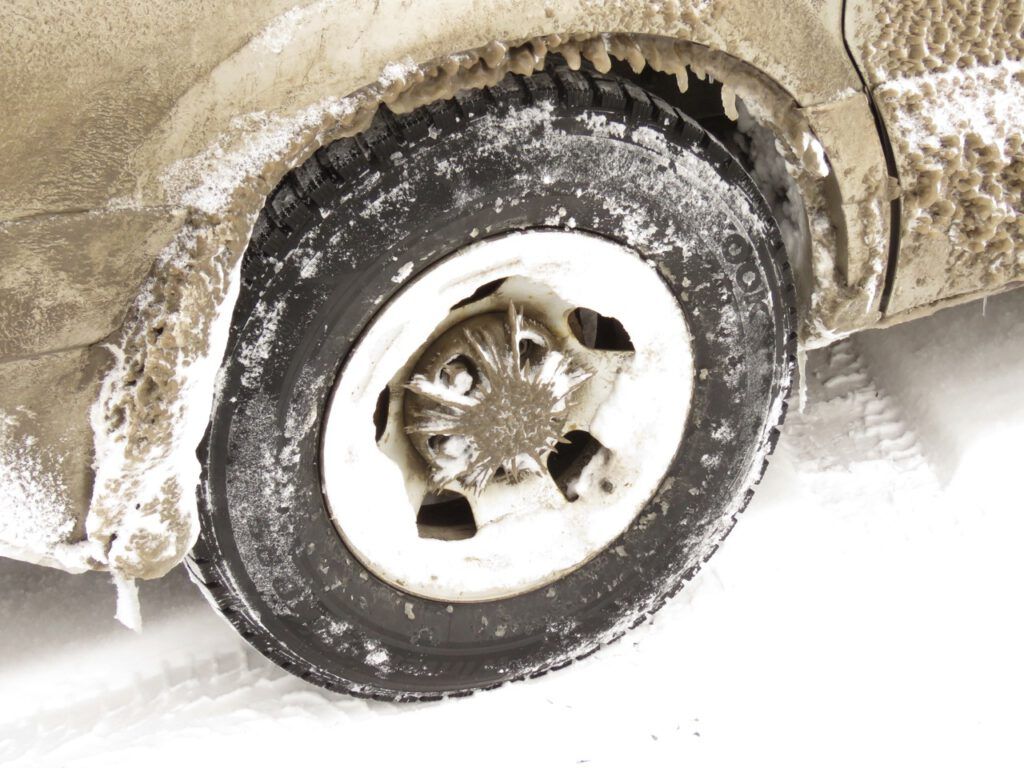 The promised warmer weather actually came – up to +5 or 6C in the day and about -10C at night. At once the birds started to move. First the redwing blackbird. Look at that rapier beak! They don’t show a lot of red on their shoulders when they first come – the hormones have to kick in.
The promised warmer weather actually came – up to +5 or 6C in the day and about -10C at night. At once the birds started to move. First the redwing blackbird. Look at that rapier beak! They don’t show a lot of red on their shoulders when they first come – the hormones have to kick in.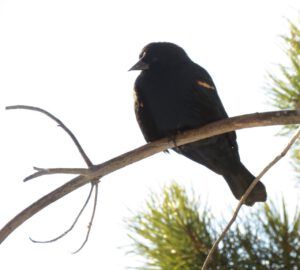 Next the junco. Now there are several of each species.
Next the junco. Now there are several of each species.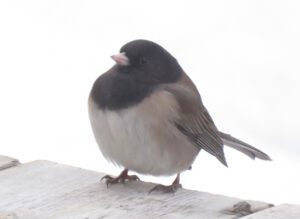 A new female red crossbill has arrived – more colourful than the other – or is it a sub-adult male? There certainly seems to be a huge colour range for this species.
A new female red crossbill has arrived – more colourful than the other – or is it a sub-adult male? There certainly seems to be a huge colour range for this species.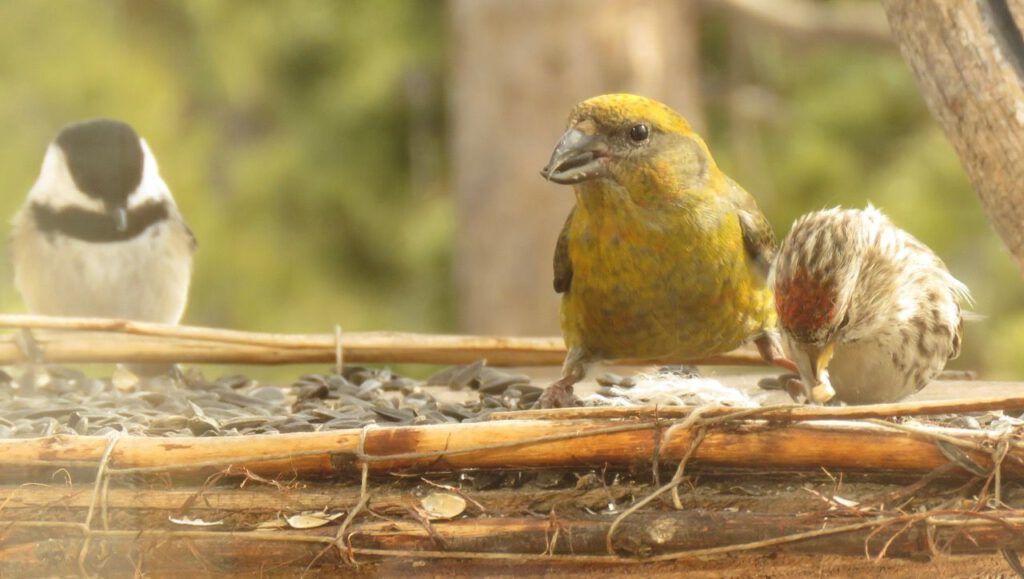 The predators are moving, too. Great grey owl.
The predators are moving, too. Great grey owl.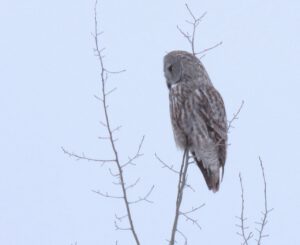 And red-tailed hawk.
And red-tailed hawk.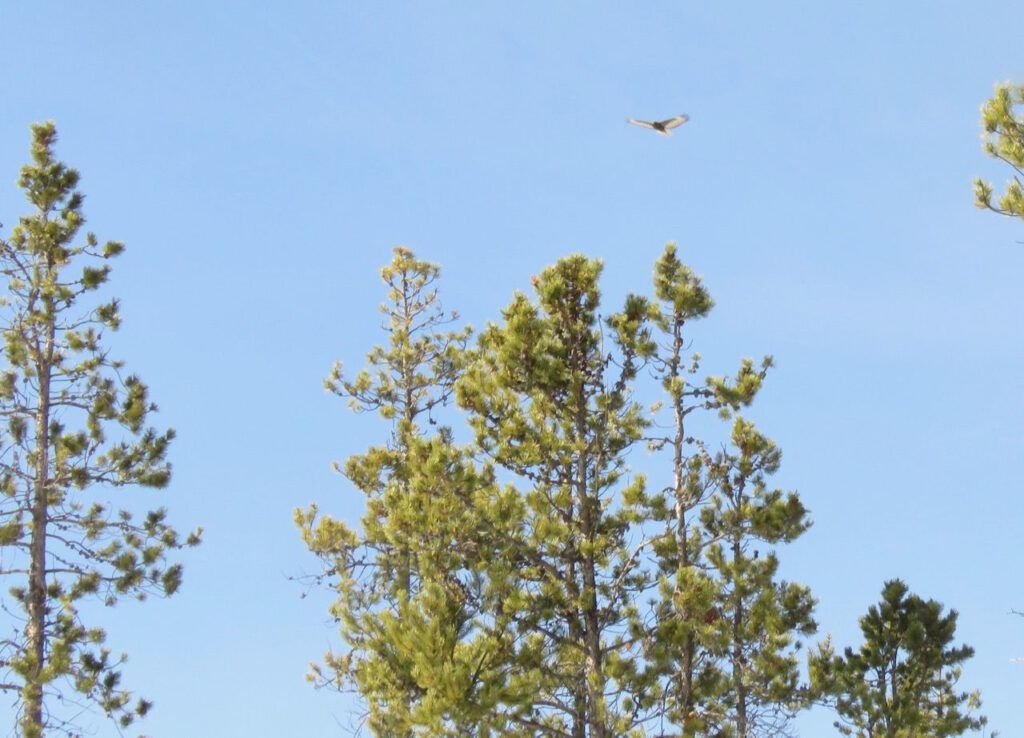 The weather has been a mixed bag. We are still getting a few snow falls
The weather has been a mixed bag. We are still getting a few snow falls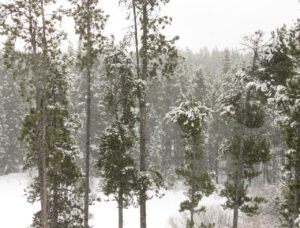 But also some sunny days. I have been incredibly busy with this fire book – and plowing and other chores, – so have done very little snowshoeing this year. One gorgeous morning I went onto the dunes. Silt blows up the cliffs and settles on the snow on the edge, causing it to melt much faster.
But also some sunny days. I have been incredibly busy with this fire book – and plowing and other chores, – so have done very little snowshoeing this year. One gorgeous morning I went onto the dunes. Silt blows up the cliffs and settles on the snow on the edge, causing it to melt much faster.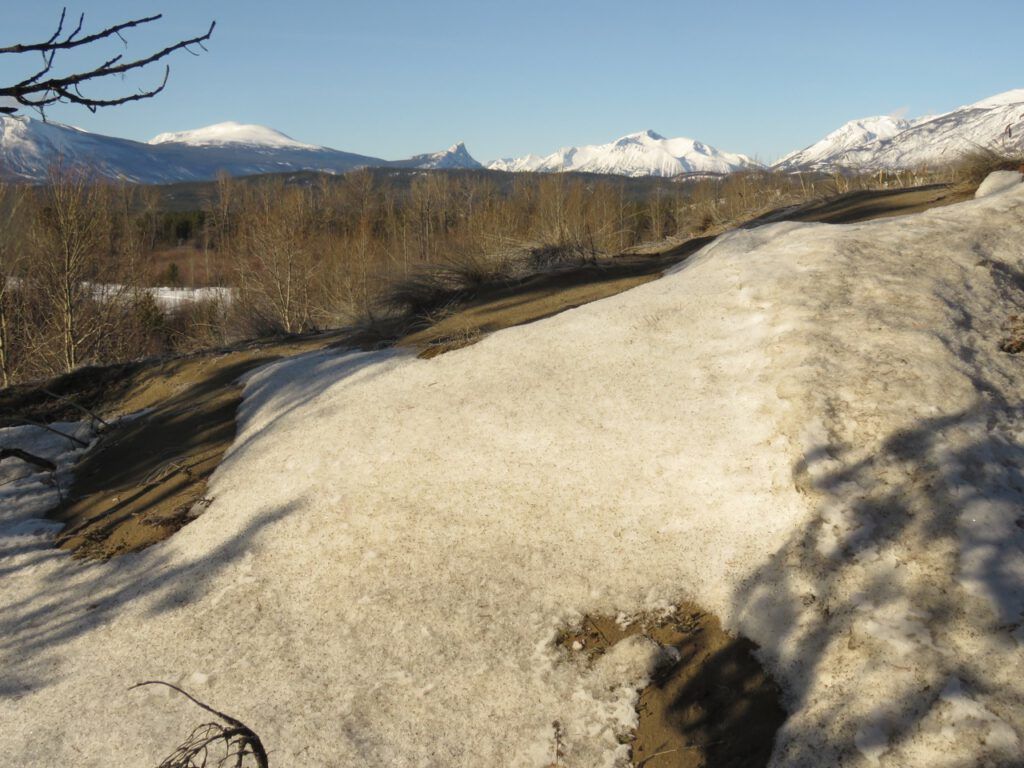 The freezing and thawing cycle is the most likely time for the edge to break away. A cautious look down below showed a lot of fresh dirt.
The freezing and thawing cycle is the most likely time for the edge to break away. A cautious look down below showed a lot of fresh dirt.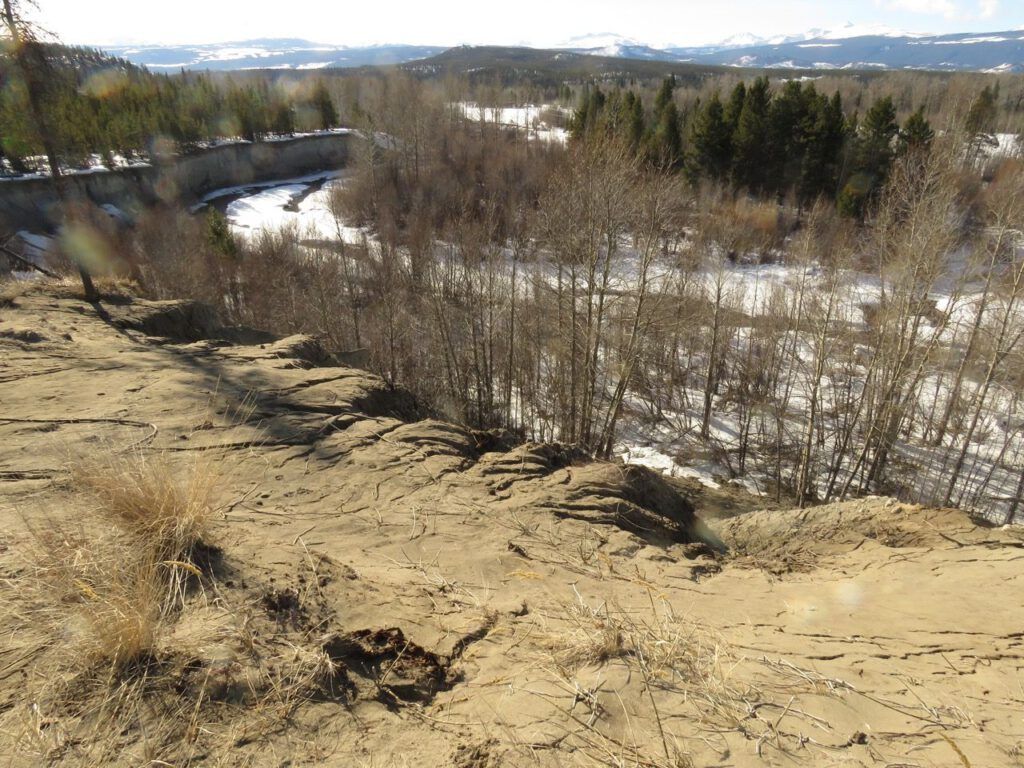 Up top, though, it was brilliant.
Up top, though, it was brilliant.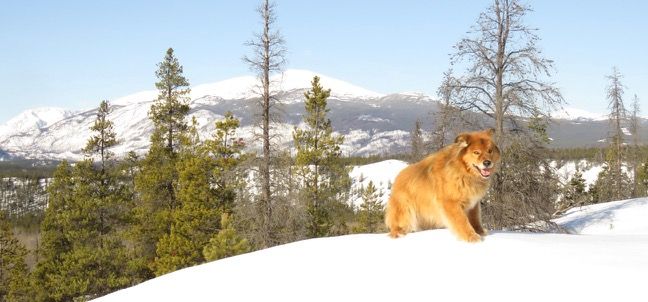 The above photo is Nogwon – below is Perkins Peak. A white streak of the lake across the highway is near the bottom right; the highway climbs a hill near the bottom left. The middle part of the picture comprises the ridges above downtown Kleena Kleene, where last summer’s fire raged back and forth for so long.
The above photo is Nogwon – below is Perkins Peak. A white streak of the lake across the highway is near the bottom right; the highway climbs a hill near the bottom left. The middle part of the picture comprises the ridges above downtown Kleena Kleene, where last summer’s fire raged back and forth for so long.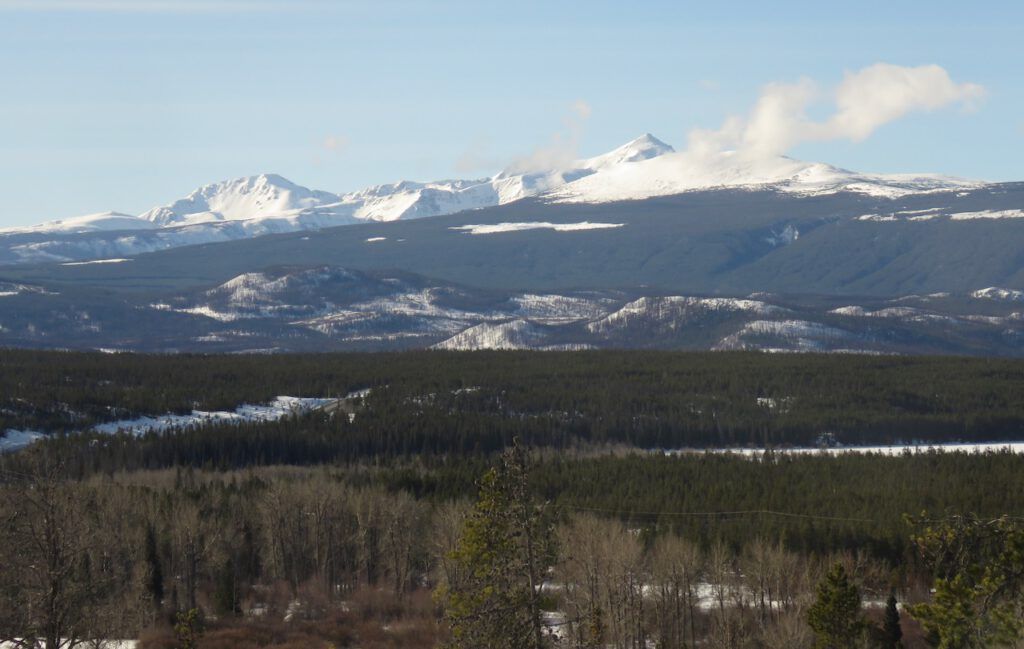 There were fresh moose tracks up on the dunes. Nothing to eat up there so I can’t imagine why. Even though this area gets blasting sun and wind, there is still 15″ snow on the ground.
There were fresh moose tracks up on the dunes. Nothing to eat up there so I can’t imagine why. Even though this area gets blasting sun and wind, there is still 15″ snow on the ground.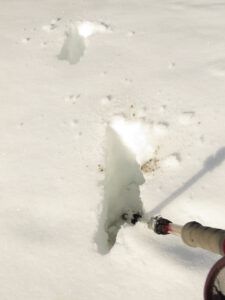 Marbles of poop were all over the place.
Marbles of poop were all over the place.
 Harry thought they were the best perfume. (Badger can’t handle these walks any more and has to stay at home.)
Harry thought they were the best perfume. (Badger can’t handle these walks any more and has to stay at home.)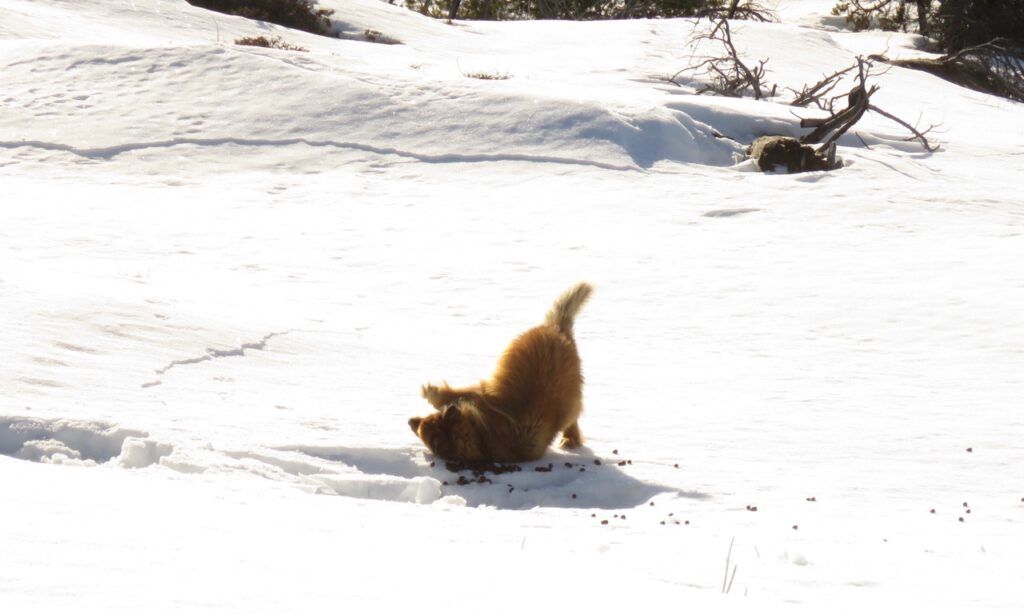 Now he looks so handsome!
Now he looks so handsome!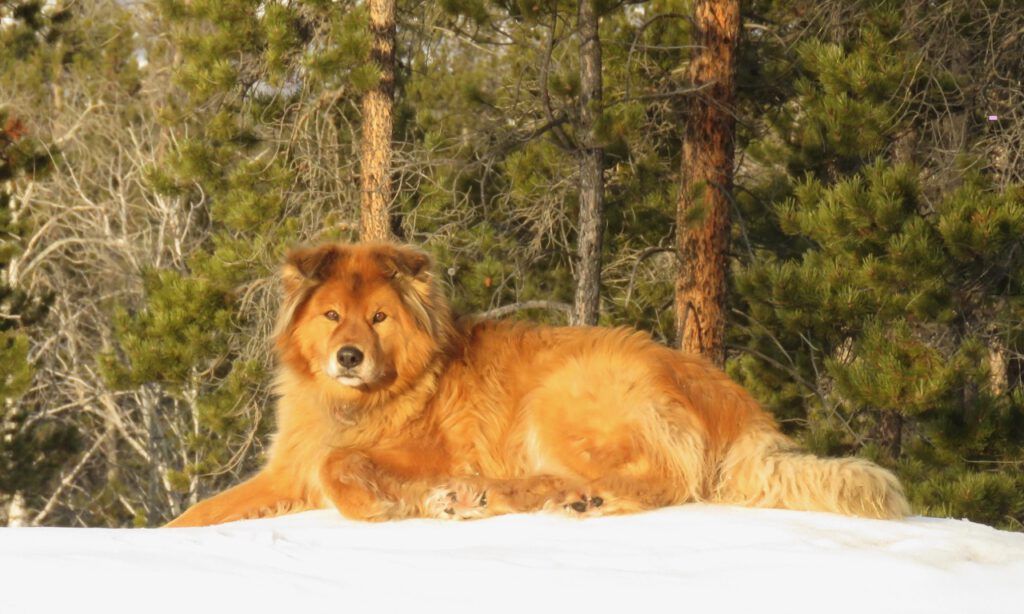 I have also been busy with our new Canadians. I am part of the teaching team, but some of the other residents have been welcoming them in other ways.
I have also been busy with our new Canadians. I am part of the teaching team, but some of the other residents have been welcoming them in other ways.
Hussna is a Mehndi expert. I have copied this extract from Wikipedia.
Henna paste is usually applied on the skin using a plastic cone, a paint brush or a stick. After about 15–20 minutes, the mud will dry and begin to crack, and during this time, a mixture of lemon juice and white sugar can be applied over the henna design to remoisten the henna mud so that the henna will stain darker. The painted area is then wrapped with tissue, plastic, or medical tape to lock in body heat, creating a more intense colour on the skin. The wrap (not a traditional method), is worn for two to six hours, or sometimes overnight, and then removed. When first removed, the henna design is pale to dark orange in colour and gradually darkens through oxidation, over the course of 24 to 72 hours. The final color is reddish brown and can last anywhere from one to three weeks depending on the quality and type of henna paste applied, as well as where it was applied on the body (thicker skin stains darker and longer than thin skin). Moisturizing with natural oils, such as olive, sesame seed, or coconut, will also help extend the lifetime of the stain. Skin exfoliation causes the henna tattoo to fade.
I did not go to this afternoon (I was busy painting scenery for the school play). Friends sent me these pictures. Here is Hussna working on someone’s arm.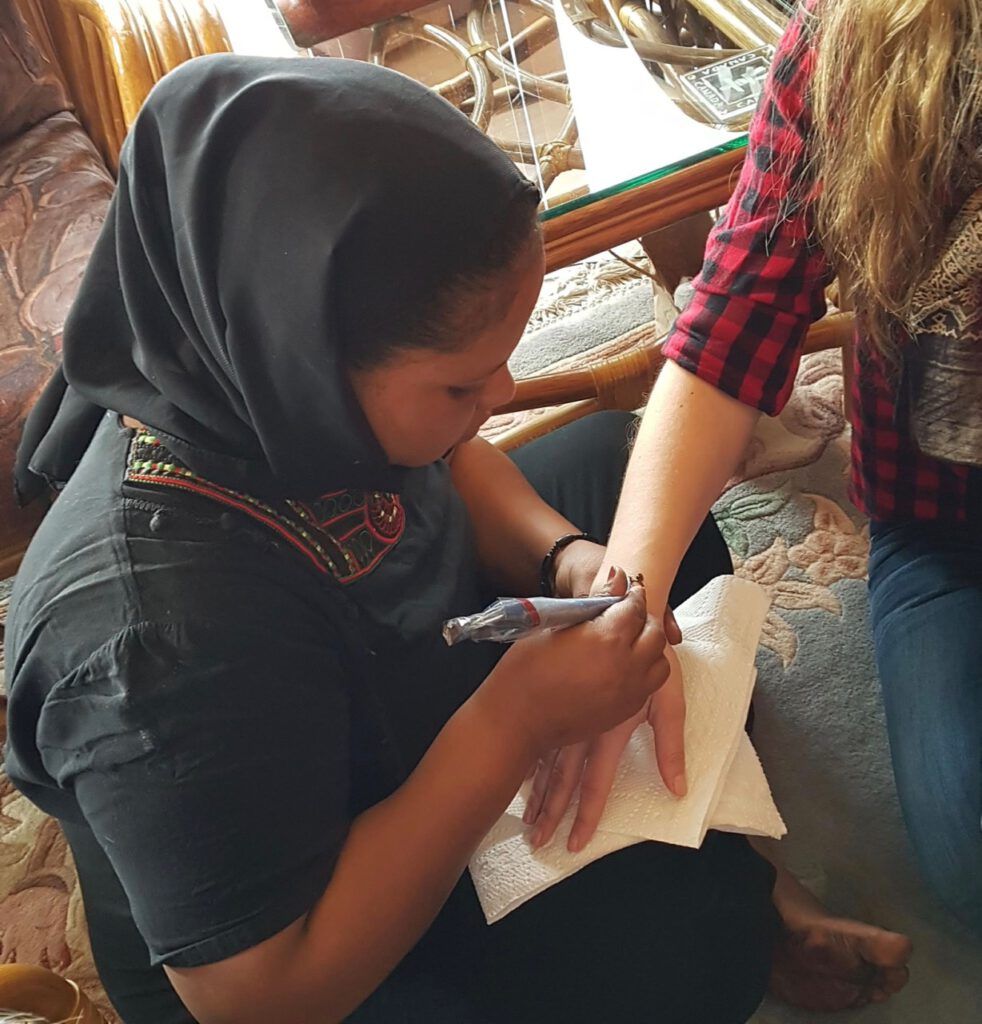 And here is the group result!
And here is the group result!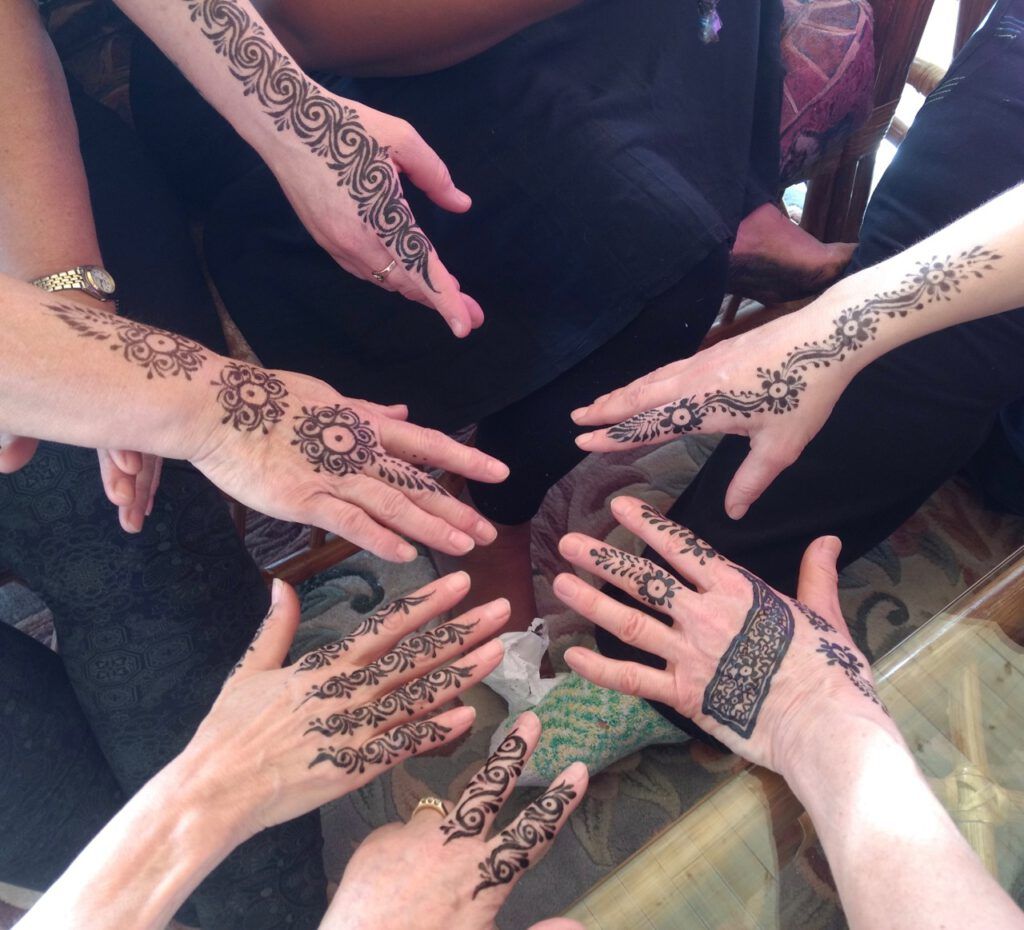 Husband Hussien, (this is not a spelling error – that is how it is written on his passport) however, is learning Canadian skills! I wonder how many other refugees get to go ice fishing! I wonder where they will be on the next spring equinox.
Husband Hussien, (this is not a spelling error – that is how it is written on his passport) however, is learning Canadian skills! I wonder how many other refugees get to go ice fishing! I wonder where they will be on the next spring equinox.